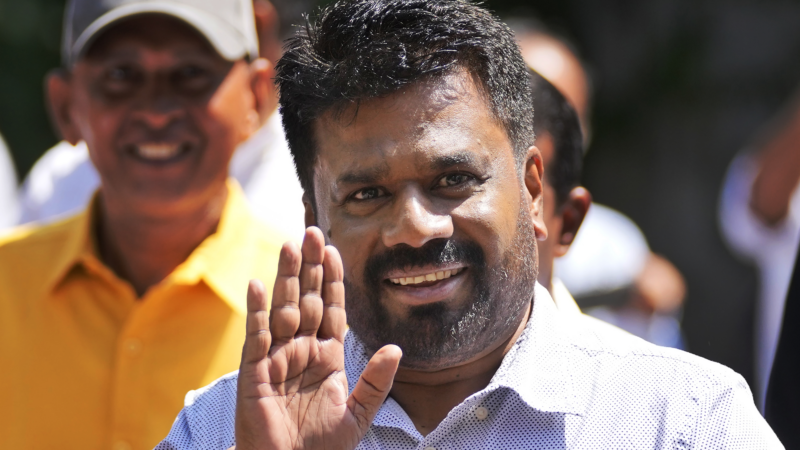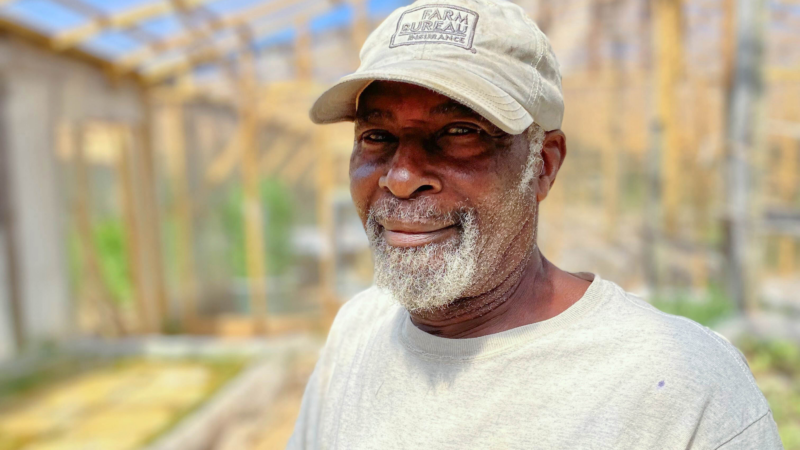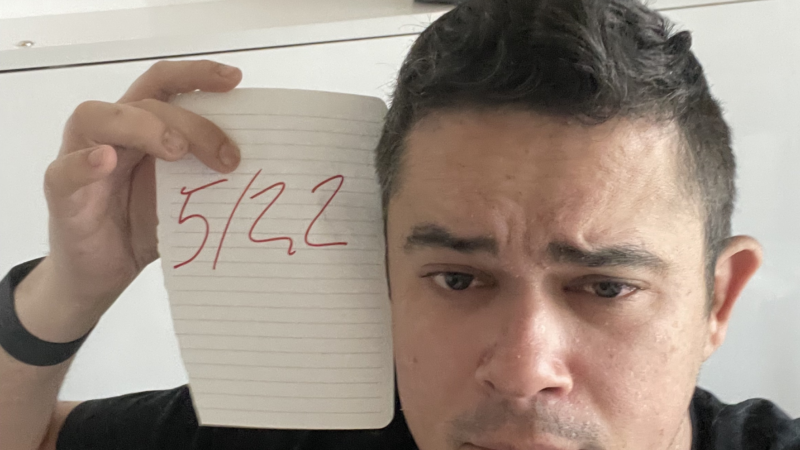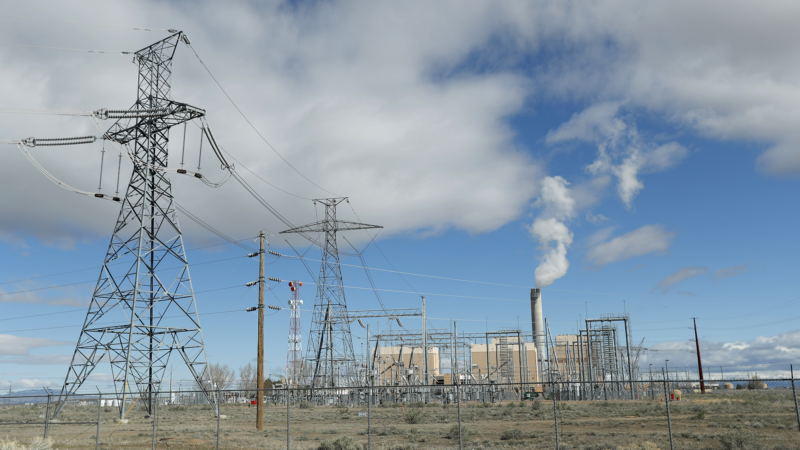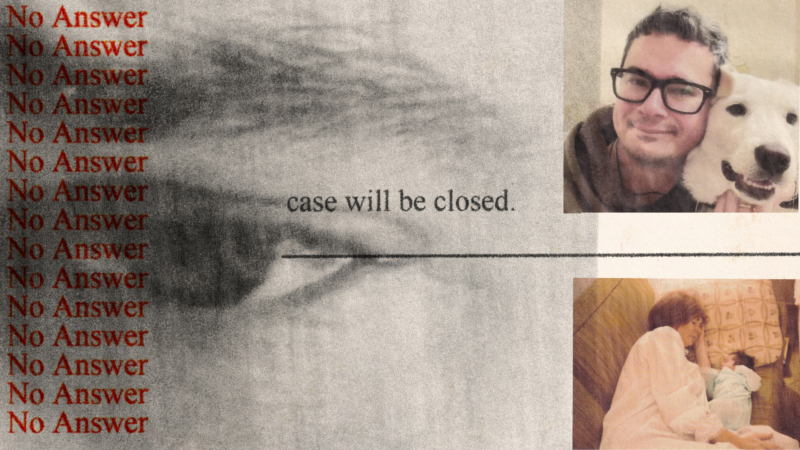Marxist Dissanayake wins Sri Lanka’s presidential election as voters reject old guard
COLOMBO, Sri Lanka — Marxist lawmaker Anura Kumara Dissanayake won Sri Lanka’s presidential election, according to data released by the Election Commission Sunday, as voters rejected the old political guard that has been widely accused of pushing the South Asian nation toward economic ruin.
Dissanayake, whose pro-working class and anti-political elite campaigning made him popular among youth, secured victory over opposition leader Sajith Premadasa and incumbent liberal President Ranil Wickremesinghe, who took over the country two years ago after its economy hit bottom.
Dissanayake received 5,740,179 votes, followed by Premadasa with 4,530,902, Election Commission data showed.
The election held Saturday was crucial as the country seeks to recover from the worst economic crisis in its history and the resulting political upheaval.
“This achievement is not the result of any single person’s work, but the collective effort of hundreds of thousands of you. Your commitment has brought us this far, and for that, I am deeply grateful. This victory belongs to all of us,” Dissanayake said in a post on X.
Dissanayake, 55, leads the left-leaning coalition National People’s Power, an umbrella of civil society groups, professionals, Buddhist clergy and students.
The election was a virtual referendum on Wickremesinghe’s leadership of a fragile recovery, including restructuring Sri Lanka’s debt under an International Monetary Fund bailout program after it defaulted in 2022.
Dissanayake had said he would renegotiate the IMF deal to make austerity measures more bearable. Wickremesinghe had warned that any move to alter the basics of the agreement could delay the release of a fourth tranche of nearly $3 billion that is crucial to maintaining stability.
Neither candidate received more than 50% of the vote. Under the Sri Lankan election system that allows voters to select three candidates in the order of their preference, the top two are retained and the ballots of the eliminated candidates are checked for preferences given to either of the top two vote-getters. The one with the highest number of votes is declared the winner.
It was a strong showing for Dissanayake, who won just over 3% of votes in a previous presidential election in 2019, and suggests voters are fatigued with the old political guard.
Wickremesinghe’s Foreign Minister Ali Sabry congratulated Dissanayake and said he hopes he will “lead with a commitment to transparency, integrity, and the long-term good of the country.”
The government announced Thursday that it passed the final hurdle in debt restructuring by reaching an agreement in principle with private bond holders. At the time of its default, Sri Lanka’s local and foreign debt totaled $83 billion. The government says it has now restructured more than $17 billion.
Despite a significant improvement in key economic figures, Sri Lankans are struggling with high taxes and living costs.
Sri Lanka’s economic crisis resulted largely from excessive borrowing on projects that did not generate revenue. The impact of the COVID-19 pandemic and the government’s insistence on using scarce foreign reserves to prop up the currency, the rupee, contributed to the economy’s free fall.
The economic collapse brought a severe shortage of essentials such as medicine, food, cooking gas and fuel, with people spending days waiting in line to obtain them. It led to rioting in which protesters took over key buildings including the president’s house, his office and the prime minister’s office, forcing then-President Gotabaya Rajapaksa to flee the country and resign.
Wickremesinghe was elected by a parliamentary vote in July 2022 to cover the remainder of Rajapaksa’s five-year term.
In one key swing state, both parties are courting Black men
With North Carolina now a toss-up this presidential election, both parties are making appeals to Black men. An older farmer and a younger restaurant owner share what's driving their votes.
The human cost of ghost networks
He tried to find a therapist who would take his insurance. He did not succeed.
Money for cutting-edge climate technology could dry up in a second Trump term
A hydrogen plant in Utah could offer a new path to slash fossil-fuel pollution. But federal funding that was critical for projects like this one could dry up if Donald Trump is reelected.
‘I Don’t Want to Die.’ He needed mental health care. He found a ghost network
Ravi Coutinho bought a health insurance plan thinking it would give him access to mental health providers. But even after 21 phone calls and multiple hospitalizations, no one could find him a therapist.
Up against a ‘ghost network’ for mental health care? Here’s what you can do
Insurers’ failures to update their provider directories have led to dire consequences for people seeking mental health care. Here's how you can navigate these challenges to find treatment.
Dungeons & Dragons turns 50 this year. Here’s what the game has meant to you
Throughout the decades, it’s remained as a way for its most loyal players to socialize with friends and escape to faraway lands. Readers and listeners to told us about the game's role in their lives.
